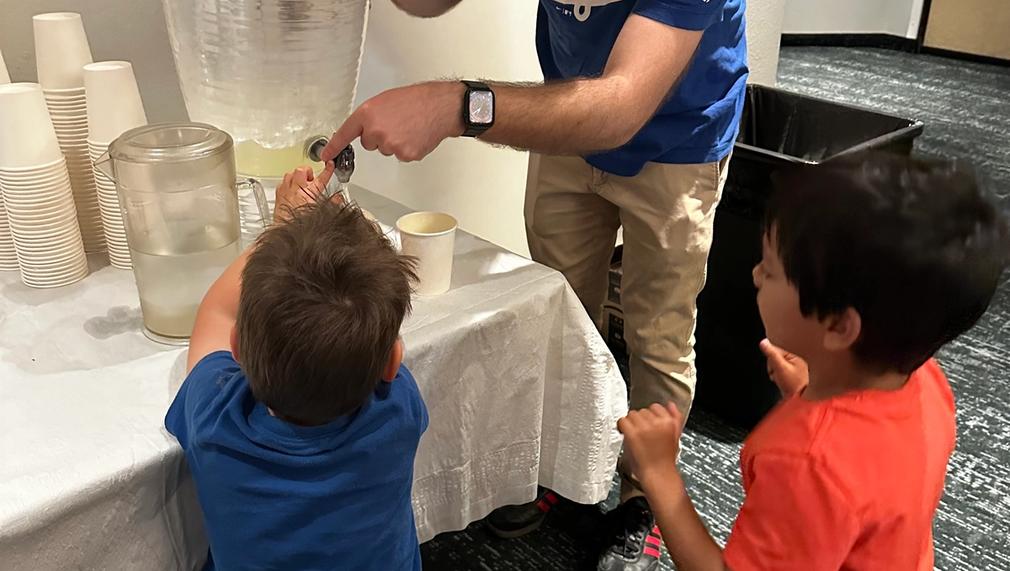Kids’ Cohort +: A Multigenerational Circle of Care
Meaningful community support makes a big difference in the lives of foster families and the children they care for, and is the core of Second Nurture (2N). The monthly Kids' Cohort is a place of stability and social-emotional development that offers consistent, nurturing relationships forming a web of belonging around children who have experienced fragmentation and loss. The + means a Clinician will train teams to facilitate experiences to strengthen capacities crucial for kids’ growth and well-being, in the form of art, play and conversation.

What is the primary issue area that your application will impact?
Support for foster and systems-impacted youth
In which areas of Los Angeles will you be directly working?
County of Los Angeles (select only if your project has a countywide benefit) City of Los Angeles (select only if your project has a citywide benefit)
In what stage of innovation is this project, program, or initiative?
Expand existing project, program, or initiative (expanding and continuing ongoing, successful work)
What is your understanding of the issue that you are seeking to address?
Children in foster care often endure the severe effects of early trauma, disrupted attachment, and frequent transitions. These early adversities contribute to developmental delays, behavioral challenges, and difficulty building trusting relationships (attachment)—which deepen over time if unaddressed. Without safe, consistent, and nurturing environments, children in foster care face bleak long-term prospects, including homelessness, incarceration, sexual exploitation, trafficking and chronic mental health challenges. Foster families are called upon to provide this crucial stability and mental and physical health interventions. But the demands on foster parents can make fostering unsustainable. Nearly one in two foster parents stop fostering within their first year. Meanwhile, many capable, caring adults in values-based communities are eager to help—but lack a structured way to contribute. Meaningful community support makes an important difference and is the core of Second Nurture.
Describe the project, program, or initiative this grant will support to address the issue.
Kids’ Cohort+ is pedagogically and therapeutically guided, and trauma-informed, yet a playful and relaxed space for foster kids aged 0–17, held during the monthly foster family Cohort gatherings. The Kids’ Cohort currently offers consistent, nurturing relationships that form a web of belonging around children who have experienced fragmentation and loss. The current and new team members will have clinician support to guide them. And they will train Kids’ Cohort + teams to bring facilitated programming to strengthen capacities that are crucial for kids’ development, all gently integrated into art, play and conversation. We plan to develop each monthly session to include:
● Social-emotional development—emotional expression through play and arts
● Development of identity, including the ability to introduce and briefly describe themselves to others in a way that affirms their sense of self, is accurate and reveals only what they choose to share
● Resilience—an outcome of the above as well as a unique programmatic goal
Objectives & Work to Be Performed
● Develop a framework, programming, and evaluation tools
● Provide materials and train Kid-Cohort facilitators & volunteers
● Pilot 3 Host Communities (expansion after 12 months)
● Provide updated materials and training (after 6-9 months)
● Create a curriculum bank of age-appropriate, culturally inclusive activities
● Implement tools to measure impact on child and foster family well-being
Describe how Los Angeles County will be different if your work is successful.
LA County will be a place where foster children and their families are no longer isolated but embraced by a multigenerational circle of care. Kids’ Cohort+ will offer children ages 0–17 a reliable, joyful, and trauma-informed space for healing and growth. Through monthly, arts- and play-based gatherings, foster youth will develop social-emotional skills, a strong sense of identity, and resilience—all foundational for long-term well-being.
As these children thrive, the impact will ripple outward: foster parents will feel more supported and sustained, youth will experience deeper community belonging and a sense of stability, and volunteers will become more invested and skilled allies. Over time, this model will contribute to healthier family placements, greater community involvement in the child welfare system, and a culture in Los Angeles that centers care, connection, and healing for its most vulnerable. Foster families and children will ask peers which 2N Cohort they belong to.
Approximately how many people will be impacted by this project, program, or initiative?
Direct Impact: 99
Indirect Impact: 3,000